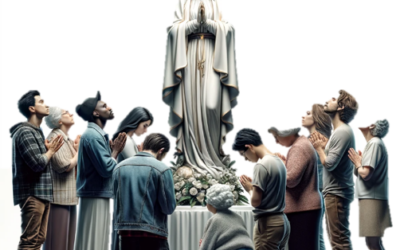The Roman Catholic Bible contains all of the sixty-six books found in Protestant Bibles but also contains 7 additional books in their Old Testament as well as expanded versions of Daniel and Esther. This larger canon was not officially codified until the Council of Trent in the 16th century, which met to respond to the Protestant Reformation. Both Jews and Protestant Christians reject these additional books as being inspired Scripture (though some Protestant Bibles have printed them as a non-inspired appendix to the Old Testament strictly for their historical and cultural value, just as they might include other non-inspired study aids like maps, marginal notes, or illustrations).
The Canon of the Catholic Bible
The New Testament of the Roman Catholic Bible is identical to that of Protestant Bibles. It contains the same 27 books, no more nor less. Catholic Bibles also contain all 39 books of the Protestant Old Testament (which are the same books that the Jews accept as Scripture). Thus, the Roman Catholic Bible does not lack any biblical books. It does, however, contain 7 additional books in its Old Testament, often called the Apocrypha or the Deuterocanonical books. These books were composed during the intertestamental period (the time between the Old and New Testaments). They are:
- Tobit
- Judith
- 1 Maccabees
- 2 Maccabees
- Wisdom of Solomon (Also known simply as “Wisdom”)
- Sirach (Also known as “The Wisdom of Sirach” or sometimes “Ecclesiasticus”)
- Baruch
The Catholic Bible also contains longer versions of the books of Esther and Daniel, including additional material not found in the version of those books accepted by Jews or Protestant Christians.
The Council of Trent and the Catholic Bible
The fourth session of the Council of Trent was concerned with the subject of Scripture. After affirming the authority of “the written books, and the unwritten traditions which, received by the Apostles from the mouth of Christ himself, or from the Apostles themselves, the Holy Ghost dictating, have come down even unto us, transmitted as it were from hand to hand”,1 the session went on to list the expanded Roman Catholic Canon noted above, then stated:
“But if any one receive not, as sacred and canonical, the said books entire with all their parts, as they have been used to be read in the Catholic Church, and as they are contained in the old Latin vulgate edition; and knowingly and deliberately contemn the traditions aforesaid; let him be anathema.”2
Thus, according to Trent, rejecting any of these books brings one under an anathema, cutting them off from the fellowship of the Roman Catholic Church and all of its alleged sacramental graces. Technically, this also anathematizes one who would claim that the Greek and Hebrew manuscripts preserve a superior text to the Latin Vulgate. Indeed, the Council then went on to clarify further that only the old Latin Vulgate was truly authentic3 (which is interesting, because the Latin Vulgate of that day contained several other books not found in Trent’s canon list, including two additional books of Esdras and two more of Maccabees.) On the supremacy of the Vulgate, however, the Roman Catholic Church eventually backed off, and even Roman Catholic Bibles today tend to be translated primarily from critical texts of the Hebrew Old Testament and Greek New Testament rather than the Latin Vulgate. Still, the declarations of Trent on the specific books of the Canon remain official Roman Catholic Dogma, and all Catholic Bibles will contain these books.
Why do Protestants reject these extra books?
For a more complete discussion of some of the central reasons Protestants reject the apocryphal books found in the Catholic Bible, see our articles “Reasons Why the Apocrypha does not belong in the Bible” and “Errors in the Apocrypha“. However, it is worth providing here a concise list of some key reasons:
- The apocryphal books were never considered inspired by the Jewish people, to whom God entrusted His Old Covenant oracles (Romans 3:1-2)
- Though the New Testament authors may allude to some of the apocryphal books in the same way they allude to culturally significant Jewish pseudepigrapha (Jude 9, 14) and even pagan writings (Acts 17:28, Titus 1:12), they never cited these as Scripture (“It is Written…”, “As the Holy Spirit said…”, etc.)
- The apocryphal books themselves note that the period in which they were written lacked authentic prophecy (1 Maccabees 9:27, 14:41, etc.)
- Despite Roman Catholic claims that these books were unanimously affirmed by the church fathers and the tradition of the church, many significant figures throughout church history have rejected them, including a number whom Rome would count as Saints and Popes. Thus, Protestants did not “remove” the books but rather sided with an equally ancient Christian tradition that also matches the Canon entrusted to the Jews.
- These apocryphal books contain factual and doctrinal errors contrary to the sixty-six books known by all to be inspired Scripture
For these reasons and more, Protestants cannot accept the expanded canon of the Roman Catholic Bible as legitimate.
References
| 1↑ | http://www.documentacatholicaomnia.eu/03d/1545-1545,_Concilium_Tridentinum,_Canons_And_Decrees,_EN.pdf (Accessed 11/2/2021) |
|---|---|
| 2↑, 3↑ | Ibid |





